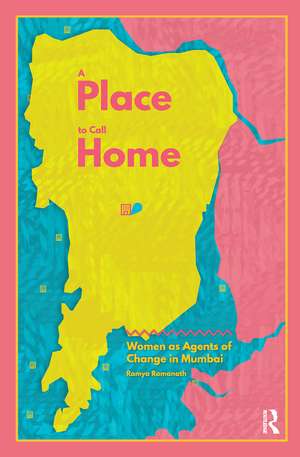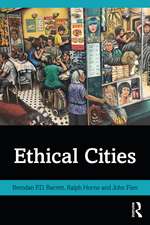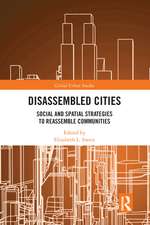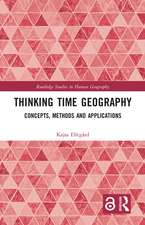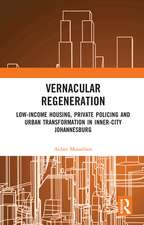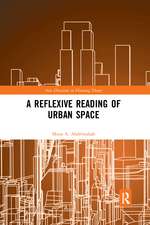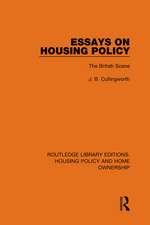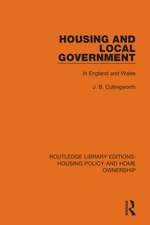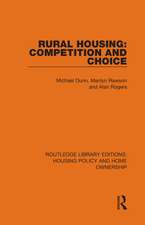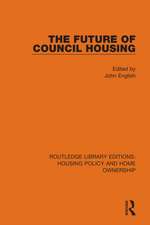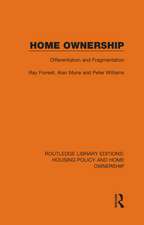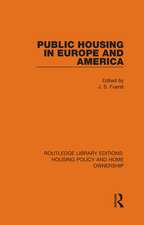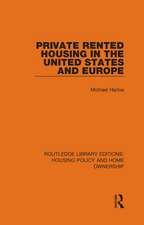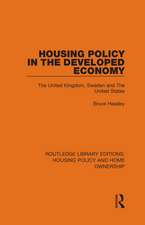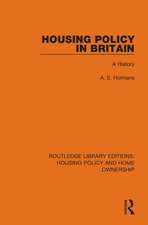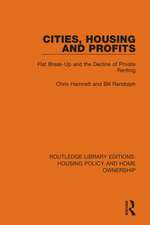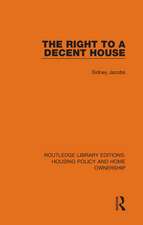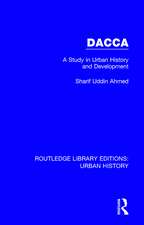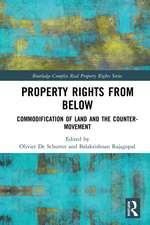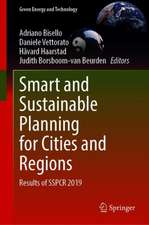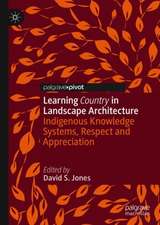A Place to Call Home: Women as Agents of Change in Mumbai
Autor Ramya Ramanathen Limba Engleză Hardback – 16 aug 2018
In this ethnographic field study, Ramya Ramanath, Associate Professor at DePaul University, examines the lives of women displaced by slum clearance and relocated to the largest slum resettlement site in Asia. Through conversations with diverse women of different ages, levels of education, types of employment, marital status, ethnicity, caste, religion, and household make-up, Ramanath recounts how women negotiate a drastic change in environment, from makeshift housing in a park slum to ownership of a high-rise apartment in a posh Mumbai suburb. Each phase of their city lives reflects how women initiate change and disseminate a vision valuable to planners intent on urban and residential transformations. Ramanath urges the concerted engagement of residents in design, development, and evaluation of place-making processes in cities and within their own neighborhoods especially.
This book will interest scholars of public policy, women and gender studies, South Asian studies, and urban planning.
| Toate formatele și edițiile | Preț | Express |
|---|---|---|
| Paperback (1) | 257.90 lei 6-8 săpt. | |
| Taylor & Francis – 30 sep 2020 | 257.90 lei 6-8 săpt. | |
| Hardback (1) | 762.97 lei 6-8 săpt. | |
| Taylor & Francis – 16 aug 2018 | 762.97 lei 6-8 săpt. |
Preț: 762.97 lei
Preț vechi: 1026.69 lei
-26% Nou
Puncte Express: 1144
Preț estimativ în valută:
145.100€ • 152.82$ • 121.51£
145.100€ • 152.82$ • 121.51£
Carte tipărită la comandă
Livrare economică 29 martie-12 aprilie
Preluare comenzi: 021 569.72.76
Specificații
ISBN-13: 9781138667341
ISBN-10: 113866734X
Pagini: 188
Ilustrații: 14
Dimensiuni: 152 x 229 x 17 mm
Greutate: 0.39 kg
Ediția:1
Editura: Taylor & Francis
Colecția Routledge
Locul publicării:Oxford, United Kingdom
ISBN-10: 113866734X
Pagini: 188
Ilustrații: 14
Dimensiuni: 152 x 229 x 17 mm
Greutate: 0.39 kg
Ediția:1
Editura: Taylor & Francis
Colecția Routledge
Locul publicării:Oxford, United Kingdom
Public țintă
Postgraduate and UndergraduateCuprins
1. Introduction 2. Vibrant Matter of The Past: A Woman’s Theory of Place 3. Deliberation Over Legitimate Benefactors in A Neoliberal Bazaar 4. Hazards of A New Fortune 5. Buildings and Business, Love and Forgiveness 6. The Depth of Place
Notă biografică
Ramya Ramanath is Associate Professor and Chair of International Public Service at DePaul University. Her research, spread over three continents, draws on disciplinary perspectives in urban planning, anthropology, and urban sociology. Her research focuses on the behavior of international and domestic nongovernmental organizations (NGOs) in the context of their interactions with government agencies, other NGOs, and intended beneficiaries. Ramanath teaches courses on the management of international NGOs, sustainable international development, cross-sector interactions, and policy implementation.
Recenzii
‘Ramya Ramanath skillfully engages an incredible range of women whose experiences vividly illustrate their struggle to make homes, access livelihoods, rebuild lives and construct new identities in the aftermath of their resettlement. These voices are a powerful mode to understand the dynamics of the brutal dislocations, disruptions, and transitions that the poor experience in Mumbai.’
Rahul Mehrotra, Professor of Urban Design and Planning, Harvard University, USA
‘Ramanath shows us the value to be gained when women are ‘listened’ to. Most literature on slums and relocation/rehabilitation takes particular stances on the existence of informal settlements and state intervention in them. The author adds nuance and complexity to these conventional narratives on both fronts. Above all, these narratives also expose the falsehood of the claims of participatory processes by movements, its politics and dynamics and their vulnerability to pressures of the larger political economy. This book will be a learning tool for cities around the world.’
Amita Bhide, Tata Institute of Social Sciences, India
‘A Place to Call Home sensitively highlights the everyday rhythms of the lives, aspirations and frustrations of a diverse group of 120 women before and after their displacement from a slum in Mumbai’s famous national park to Asia’s largest urban resettlement scheme. It is a must read for anybody interested in gender, place making, urban resettlement and public policy.’
Lyla Mehta, Institute of Development Studies, UK
‘There is much to learn from Ramanath’s work about the importance of relationality, behaviours, memory and materiality within place. The book is a pragmatic, cogent argument for resettlement and rehabilitation policy to give more sensitive attention to the lifeworlds of future residents. The documents of master-planners and consultants frequently contain content, based on ‘consultation’, that purports to identify what is important about a place. The power of this book is that it shows how engagement that is more open and more genuine than what consultants usually achieve generates less quantifiable and less monetisable, yet more profound and infinitely more important findings.’
Housing Studies
'The ethnographic methodology adopted by Ramanath yields a depth of humanity that would otherwise be lost or overlooked in the aggregate facts and figures summarizing the effectiveness of such policies and programs. Yet, it also leaves the reader with the acute awareness of the effort needed to ensure that these voices reach the ears of researchers, policymakers, and practitioners working on the ground in resettlement and rehabilitation efforts in India and around the world. We are left wondering, how might the rules of newly constructed apartment buildings that enforce "benevolent segregation" accommodate the social capital lost in the resettlement process? An excellent read for those who wish to hear the voices on the ground during the resettlement process.'
Nonprofit and Voluntary Sector Quarterly
'A Place to Call Home: Women as Agents of Change in Mumbai convincingly argues, a gendered perspective has sorely been missing from the discussion. To this end, the book makes a timely and original contribution, offering a nuanced interpretation of the role of gender in rehousing processes in rapidly urbanizing regions. However, due to the pervasiveness of the displacement phenomenon worldwide, the book could also be of great value to scholars and practitioners in the global north.'
Journal of Planning Education and Research
Rahul Mehrotra, Professor of Urban Design and Planning, Harvard University, USA
‘Ramanath shows us the value to be gained when women are ‘listened’ to. Most literature on slums and relocation/rehabilitation takes particular stances on the existence of informal settlements and state intervention in them. The author adds nuance and complexity to these conventional narratives on both fronts. Above all, these narratives also expose the falsehood of the claims of participatory processes by movements, its politics and dynamics and their vulnerability to pressures of the larger political economy. This book will be a learning tool for cities around the world.’
Amita Bhide, Tata Institute of Social Sciences, India
‘A Place to Call Home sensitively highlights the everyday rhythms of the lives, aspirations and frustrations of a diverse group of 120 women before and after their displacement from a slum in Mumbai’s famous national park to Asia’s largest urban resettlement scheme. It is a must read for anybody interested in gender, place making, urban resettlement and public policy.’
Lyla Mehta, Institute of Development Studies, UK
‘There is much to learn from Ramanath’s work about the importance of relationality, behaviours, memory and materiality within place. The book is a pragmatic, cogent argument for resettlement and rehabilitation policy to give more sensitive attention to the lifeworlds of future residents. The documents of master-planners and consultants frequently contain content, based on ‘consultation’, that purports to identify what is important about a place. The power of this book is that it shows how engagement that is more open and more genuine than what consultants usually achieve generates less quantifiable and less monetisable, yet more profound and infinitely more important findings.’
Housing Studies
'The ethnographic methodology adopted by Ramanath yields a depth of humanity that would otherwise be lost or overlooked in the aggregate facts and figures summarizing the effectiveness of such policies and programs. Yet, it also leaves the reader with the acute awareness of the effort needed to ensure that these voices reach the ears of researchers, policymakers, and practitioners working on the ground in resettlement and rehabilitation efforts in India and around the world. We are left wondering, how might the rules of newly constructed apartment buildings that enforce "benevolent segregation" accommodate the social capital lost in the resettlement process? An excellent read for those who wish to hear the voices on the ground during the resettlement process.'
Nonprofit and Voluntary Sector Quarterly
'A Place to Call Home: Women as Agents of Change in Mumbai convincingly argues, a gendered perspective has sorely been missing from the discussion. To this end, the book makes a timely and original contribution, offering a nuanced interpretation of the role of gender in rehousing processes in rapidly urbanizing regions. However, due to the pervasiveness of the displacement phenomenon worldwide, the book could also be of great value to scholars and practitioners in the global north.'
Journal of Planning Education and Research
Descriere
In this ethnographic field study, Ramya Ramanath, Associate Professor at DePaul University, examines the lives of women displaced by slum clearance and relocated to the largest slum resettlement site in Asia.
